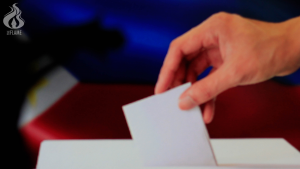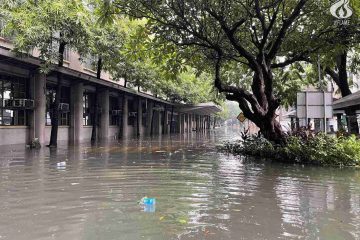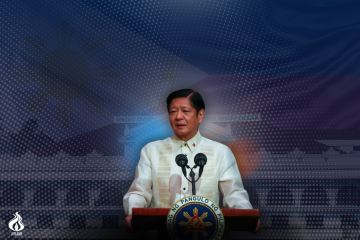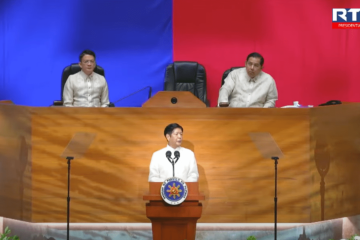
CRITICISMS AGAINST the government’s response to the COVID-19 pandemic may increase the voter turnout during the 2022 elections, a public administration expert said.
Ronald Mendoza, dean of Ateneo de Manila University School of Government, said the administration’s pandemic response was a “mismanagement” and that poor decisions, paired with issues of corruption, might prod more Filipinos to participate in the polls
“[The COVID-19 pandemic] can shape the elections by increasing turnout for many who believe we deserve better pandemic management,” Mendoza said during an online forum on campaign dynamics last Oct. 13.
Mendoza noted that the National Economic and Development Authority has predicted that there would be “deep scarring” in the Philippine economy because of the health crisis.
The economy may lose up to P40 trillion or two times the total output of last year’s gross domestic product in the next four years or so, he added.
“It will take us at least a decade, by their estimates, to reclaim our economic growth trajectory which we lost in 2019. That was when the average growth (was) six percent per year,” Mendoza said.
“That is why this election is so important because leadership and governance is what will bring back that six percent growth per year, and if we do not bring back better leaders, then we will actually risk losing it,” he added.
Mendoza warned that failure to go back to the growth trajectory would affect the government’s capability to support key expenditures like military modernization, infrastructure, and social protection.
The Commission on Elections has extended the voter registration until Oct. 30.
Election to be postponed?
Maria Ela Atienza, former political science department chair of the University of the Philippines, said Filipinos should also not worry about the feared possible postponement of the elections due to COVID-19 risks.
“Some elections were postponed, but many still pushed through. In the International Institute for Democracy and Electoral Accountability’s data, many elections were held as scheduled including in Malaysia, South Korea, and of course, in the US,” she said.
The pandemic, Atienza pointed out, is not an automatic cause for lower voter turnout. She said the voter turnout in 32 countries increased during elections held between February 2020 and September 2021.
“Generally, it’s not just because of the pandemic, but the trust in the political system and the protocols that were strictly implemented,” Atienza said.
New battleground
In the same forum, University of Santo Tomas political science department chair Asst. Prof. Dennis Coronacion said social media platforms would be the new battleground for the upcoming elections because they have become the main venues of political discussions.
“Most of the issues about politics are being discussed on social media platforms. They have been the main venues of political discourse. We are expecting that the virtual campaigns would be the new battle zones during the pandemic restrictions,” Coronacion said in a mix of English and Filipino.
Coronacion said the increased reliance of Filipinos on the internet as a source of political information would play a crucial role in influencing the public’s political views and preferred candidates.
“The election campaign dynamics will be informed by the constraints of the new normal. Several physical and travel restrictions would severely alter the campaign methods of the candidates,” he added.
Political strategists, Coronacion said, would need to rely less on traditional media and more on social media platforms, blogs, vlogs, and teleconferences such as Zoom.
The pandemic would also affect the interactions between the candidates and the voters as traditional methods of campaigning could hardly be done at this time, Far Eastern University Nicanor Reyes Medical Foundation president Antonio Abad, Jr. said.
“Public health should never be sacrificed when engaging in election-related activities such as political campaigns. We must take steps to adapt traditional campaigns so that they will not turn into superspreader events,” he added.
Dubbed as “Kanya-kanyang Diskarte: Campaign Dynamics During the Pandemic,” the online event was organized by the Philippines Communication Society in collaboration with UP’s Internet TV Network, TVUP. F – Karen Renee S. Nogoy



